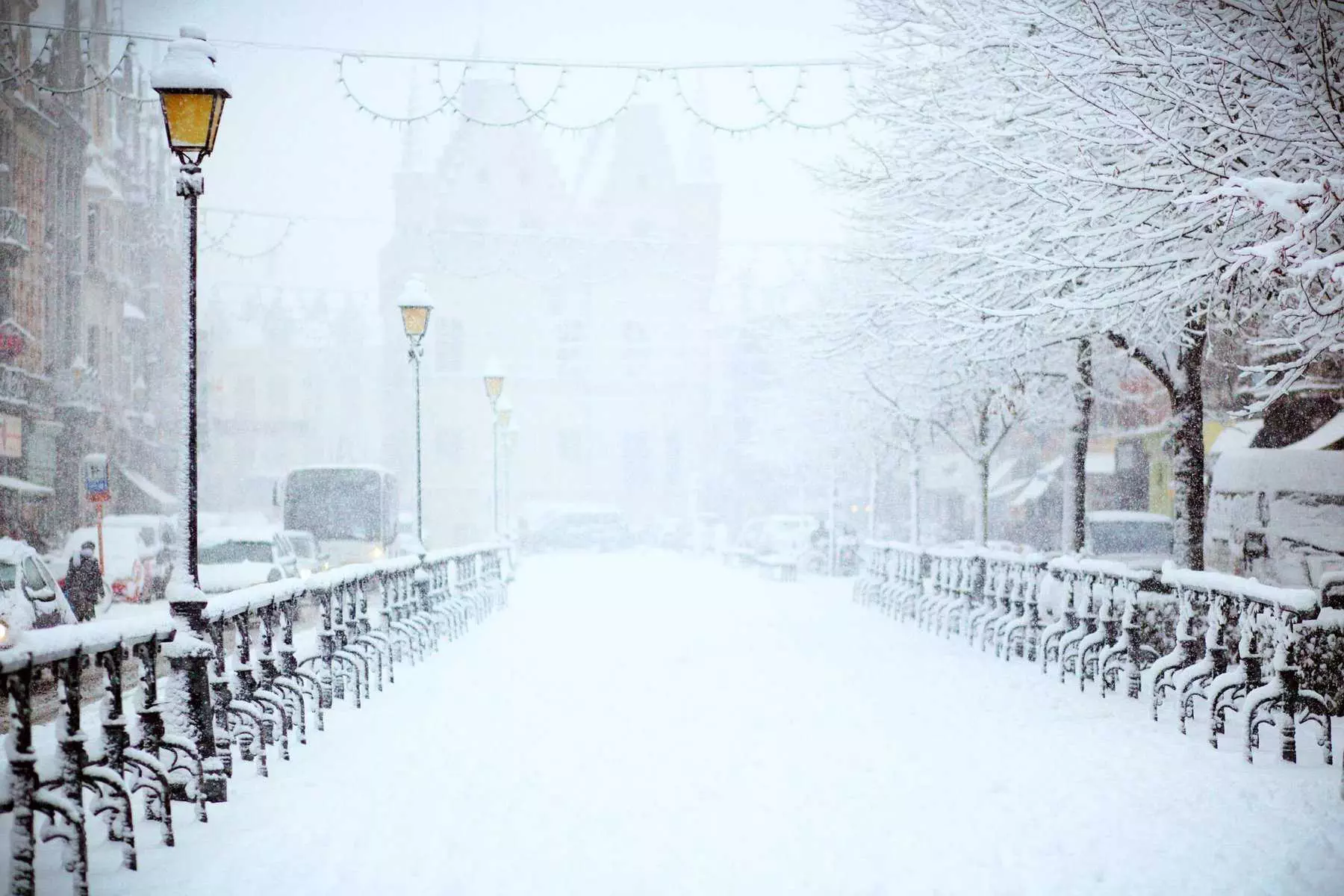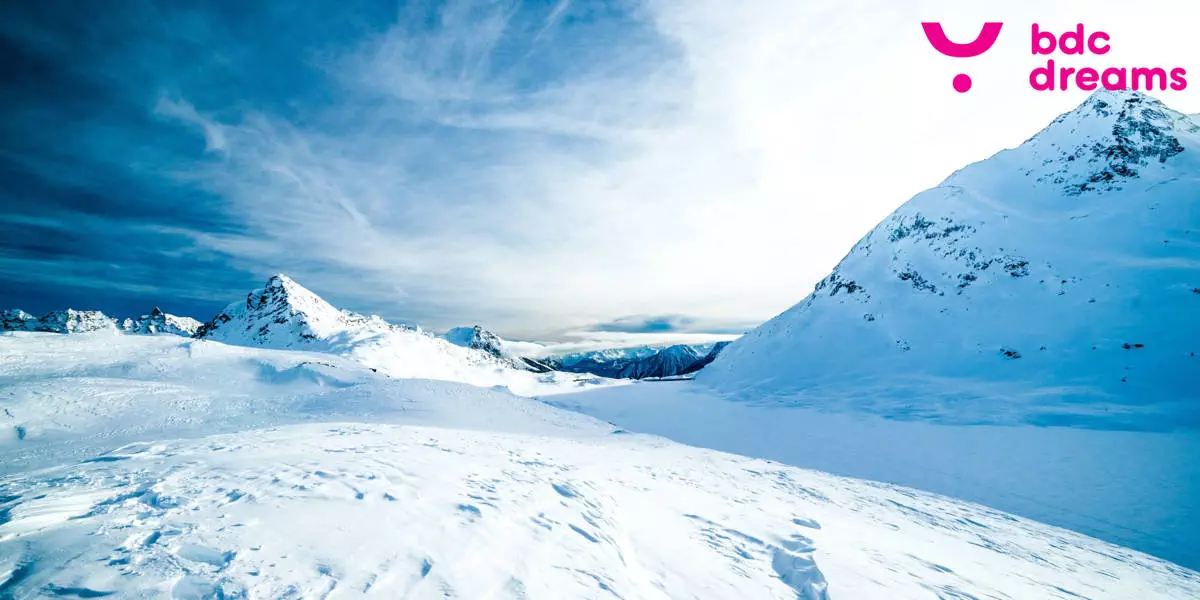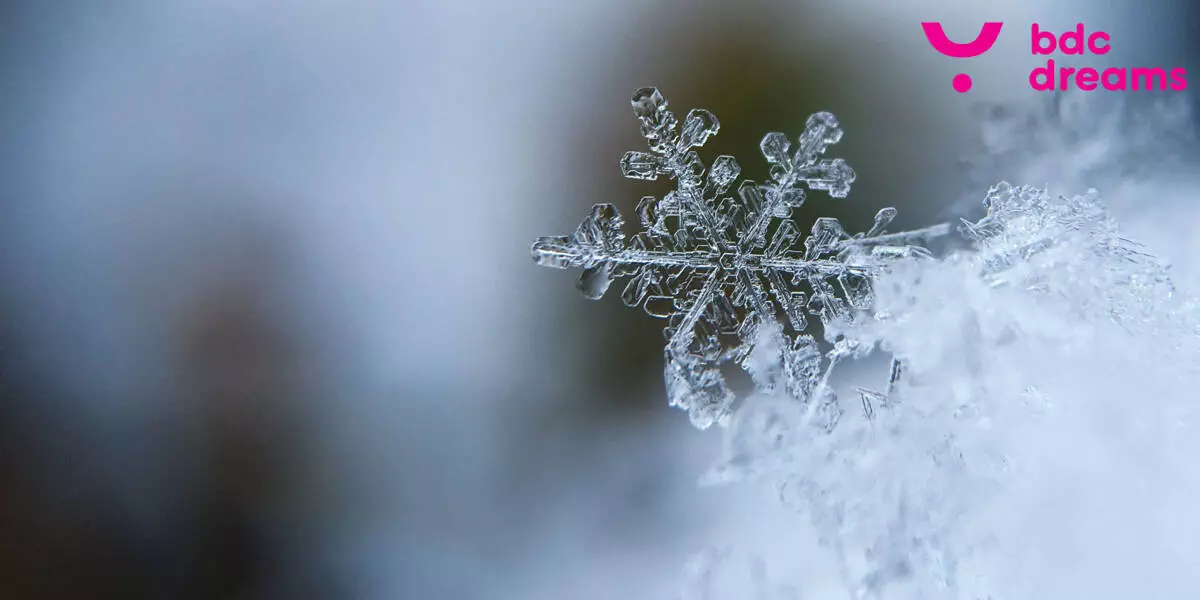Dreaming of snow can symbolize a period of emotional or spiritual purity, a need for introspection, or a desire for renewal and a fresh start.
Snow dreams have long been a subject of fascination and intrigue. I myself also dreamed about snow multiple times in the past few years, even though my country does not have snow.
Many people have experienced dreams where snow plays a prominent role, whether it be a snowy landscape, snowfall, or even being trapped in a blizzard. Today, let’s discover the snow dream meaning and uncover some hidden secrets behind those dreams.
These dreams can hold significant meaning and symbolism, offering insights into our subconscious thoughts and emotions. Understanding and interpreting snow dreams can be a powerful tool for personal growth and self-discovery.
What are Snow Dreams and Why Do We Have Them?
Snow dreams are dreams that feature snow as a prominent element. This can include dreams of snowy landscapes, snowfall, or even being trapped in a blizzard. The presence of snow in dreams can hold various meanings and interpretations.
There are several possible reasons why we have snow dreams. One reason could be that snow is a common element in our daily lives, especially for those who live in regions with cold climates. Our experiences and memories of snow may manifest in our dreams as a result. Additionally, snow is often associated with winter, which can symbolize a period of introspection and reflection. Snow dreams may therefore be a reflection of our need for self-reflection and inner growth.
Paying attention to our dreams is important because they can provide valuable insights into our subconscious mind. Dreams often contain symbols and metaphors that represent our deepest thoughts and emotions. By analyzing and interpreting our dreams, we can gain a better understanding of ourselves and uncover hidden aspects of our personality.
The Symbolism of Snow in Dreams: What Does It Mean?
Snow in dreams can hold various symbolic meanings. It can represent purity, tranquility, and a sense of calmness. Snow is often associated with a clean slate, a fresh start, and the opportunity for renewal. It can also symbolize isolation, coldness, and emotional detachment.
The interpretation of snow in dreams can vary depending on the context and the emotions associated with it. For example, a dream of walking through a peaceful snowy landscape may represent a desire for tranquility and inner peace. On the other hand, a dream of being trapped in a blizzard may symbolize feelings of being overwhelmed or trapped in a difficult situation.
Examples of snow symbolism in dreams can include dreams of building a snowman, which may represent the desire to create something new or to express oneself creatively. Dreams of snow angels may symbolize a desire for innocence and purity. Dreams of slipping on ice or falling in the snow may represent feelings of insecurity or vulnerability.
The Science Behind Snow Dreams: How Our Brain Processes Them
Dreams are formed during the rapid eye movement (REM) stage of sleep. During this stage, the brain is highly active, and various regions of the brain are involved in processing and creating dreams. The exact mechanisms behind dream formation are still not fully understood, but it is believed that dreams are a result of the brain’s attempt to make sense of random neural activity.
When it comes to snow dreams, the brain processes them in a similar way to other types of dreams. The brain draws upon our memories, experiences, and emotions to create dream scenarios that involve snow. The specific details and symbolism of snow in dreams can vary depending on our individual experiences and associations with snow.
Common Themes in Snow Dreams: What Do They Reveal About Our Subconscious?
There are several common themes that often appear in snow dreams. These themes can provide insights into our subconscious thoughts and emotions.
- One common theme is being trapped or lost in a blizzard. This can symbolize feelings of being overwhelmed or lost in our waking life. It may indicate a need for direction or guidance.
- Another common theme is the beauty and tranquility of a snowy landscape. This can represent a desire for peace and serenity in our lives. It may indicate a need for relaxation and self-care.
- Yet another common theme is the melting of snow. This can symbolize the passing of time and the impermanence of things. It may indicate a need to let go of the past and embrace change.
I have compiled a table of common themes of snow dream below:
| Common Themes in Snow Dreams | Interpretations |
|---|---|
| Blanket of White | Symbolizes purity, a fresh start, or a clean slate. |
| Coldness and Isolation | May reflect emotional distance, loneliness, or fear. |
| Footprints or Tracks | Suggests a path to follow or past actions taken. |
| Snowstorm or Blizzard | Represents chaos, uncertainty, or overwhelming emotions. |
| Playing in Snow | Signifies joy, innocence, or a desire for spontaneity. |
| Melting Snow | Implies a thawing of emotions, change, or renewal. |
| Falling Snowflakes | Can symbolize serenity, tranquility, or spiritual insights. |
| Snow-Covered Objects | Points to hidden aspects, forgotten memories, or secrets. |
| Slippery/Icy Surface | Warns of potential difficulties or challenges ahead. |
| Watching Snowfall | Reflects contemplation, introspection, or observation. |
Interpreting these themes in snow dreams can provide valuable insights into our subconscious thoughts and emotions. By paying attention to these themes and reflecting on their meaning, we can gain a deeper understanding of ourselves and our innermost desires.
The Role of Emotions in Snow Dreams: How They Affect Our Interpretation
Emotions play a significant role in dreams, including snow dreams. The emotions we experience in our dreams can greatly influence our interpretation of the dream.
For example, if we feel a sense of joy and excitement while playing in the snow in our dream, it may indicate a desire for fun and spontaneity in our waking life. On the other hand, if we feel fear or anxiety while being trapped in a blizzard, it may indicate feelings of being overwhelmed or trapped in our waking life.
Recognizing and understanding our emotions in dreams is important for interpreting their meaning. By paying attention to the emotions we experience in snow dreams, we can gain insights into our subconscious thoughts and emotions.
Recurring Snow Dreams: What They Say About Our Innermost Thoughts
Recurring dreams are dreams that occur repeatedly over a period of time. These dreams often hold significant meaning and can provide valuable insights into our innermost thoughts and emotions.
Recurring snow dreams may indicate unresolved issues or emotions that need to be addressed. They may represent recurring patterns or themes in our waking life that we need to pay attention to. By analyzing and interpreting recurring snow dreams, we can gain a deeper understanding of ourselves and our subconscious thoughts.
For example, if we have recurring dreams of being trapped in a blizzard, it may indicate a recurring feeling of being overwhelmed or trapped in our waking life. By addressing these feelings and finding ways to cope with them, we can work towards personal growth and self-discovery.
Lucid Snow Dreams: How to Control and Interpret Them
Lucid dreams are dreams in which the dreamer is aware that they are dreaming. This awareness allows the dreamer to have some control over the dream and its outcome.
We have a whole section on this website dedicated to Lucid Dreaming. Make sure to check it out!
Controlling and interpreting lucid snow dreams can be a powerful tool for personal growth and self-discovery. By becoming aware that we are dreaming, we can actively engage with the dream and explore its symbolism and meaning.
Tips for controlling and interpreting lucid snow dreams include keeping a dream journal, practicing reality checks throughout the day to increase awareness, and setting intentions before going to sleep. By actively engaging with lucid snow dreams, we can gain deeper insights into our subconscious thoughts and emotions.
The Connection Between Snow Dreams and Seasonal Affective Disorder (SAD)
Seasonal Affective Disorder (SAD) is a type of depression that occurs during certain seasons, typically winter. It is believed to be caused by a lack of sunlight, which can affect the production of serotonin in the brain.
SAD can influence snow dreams by amplifying feelings of sadness, isolation, and emotional detachment. Snow dreams during the winter months may be more prevalent for individuals with SAD.
Managing SAD and its effects on dreams can involve various strategies, such as light therapy, regular exercise, and seeking support from mental health professionals. By addressing SAD symptoms, individuals may experience a decrease in snow dreams and an improvement in overall well-being.
Snow Dreams in Different Cultures: A Comparative Analysis
Snow dreams can have different meanings and interpretations across different cultures. Cultural beliefs and values can influence how snow dreams are interpreted and understood.
For example, in some cultures, snow is associated with purity and innocence. In others, it may be seen as a symbol of coldness and isolation. Understanding the cultural context of snow dreams can provide a more nuanced interpretation and understanding of their meaning.
Despite cultural differences, there may also be similarities in snow dream symbolism across cultures. For example, the idea of a fresh start or renewal may be a common theme in snow dreams across different cultures.
How to Use Snow Dreams for Personal Growth and Self-Discovery
Using snow dreams for personal growth and self-discovery involves actively engaging with and interpreting the symbolism and meaning of these dreams. Some tips for interpreting and analyzing snow dreams include keeping a dream journal, reflecting on the emotions and themes present in the dream, and seeking professional help if needed.
By using snow dreams as a tool for self-reflection and exploration, we can gain valuable insights into our subconscious thoughts and emotions. This can lead to personal growth, increased self-awareness, and a deeper understanding of ourselves.
Conclusion
In contemplating the multifaceted meanings behind snow dreams, I find myself captivated by the intricate interplay of symbolism and the depths of the human subconscious. These dreams, like delicate snowflakes, carry a uniqueness that resonates with each individual. As I’ve delved into the common themes and interpretations, it becomes evident that snow dreams serve as a canvas upon which our emotions, fears, hopes, and desires are painted.
While we can find shared threads of meaning, the ultimate key lies within the individual dreamer, embracing the enigmatic beauty that dreams, like snow, bring to our lives.
What Does Your Snow Dream Mean?
Originally posted 2023-08-14 09:07:04.
Meet Dreamie, the author behind BDCdreams.com, a captivating website dedicated to the enchanting world of dreams. With a passion for unraveling the mysteries of the subconscious mind, Dreamie takes readers on a journey through the realm of slumber, exploring the fascinating landscapes of lucid dreaming, dream analysis, and the art of harnessing one’s inner creativity.




